TRAINING GRANTS
2020-2021 TRAINING GRANT RECIPIENTS
TRAINEES
"Improving public health surveillance of Onchocerca lupi through increased host and vector screening"

Chandler Roe, PhD, MS
Dr. Chandler Roe is a data scientist at the Pathogen and Microbiome Institute. She completed her PhD in informatics and computing with an emphasis on bioinformatics at Northern Arizona University in 2023. Dr. Roe’s work in Dr. Jason Sahl’s lab during her graduate studies was focused on population genomics of infectious diseases, with particular interest regarding the genomics of the vector-borne disease, Onchocerca lupi in Northern Arizona. She hopes her research will directly inform vector control units to employ black fly control efforts near high-risk areas thus breaking the transmission cycle.
- LupiQuant: A real-time PCR based assay for determining host-to-parasite DNA ratios of Onchocerca lupi and host Canis lupus from onchocercosis samples. Roe CC, Urbanz J, Auten C, Verocai GG, Upshaw-Bia K, Holiday O, et al. PLoS ONE. 2022. https://doi.org/10.1371/journal.pone.0276916
- Complete mitochondrial genome of Onchocerca lupi (Nematoda, Onchocercidae). Roe CC, Urbanz J, Andrews L, Verocai GG, Engelthaler DM, Hepp CM et al. Mitochondrial DNA Part B. 2021. https://doi.org/10.1080/23802359.2021.1960211
- St. Louis encephalitis virus in the Southwestern United States: A phylogeographic case for a multi-variant introduction event. Ridenour CL, Roe CC, Henke JA, Raman V, Foster JT, Hepp CM et al. Front Genet. 2021. https://doi.org/10.3389/fgene.2021.667895
“This grant has allowed me to conduct a research project I have wanted to do for the last ten years. This project is now a chapter in my dissertation and I will be able to work on this understudied organism for the duration of my career.”

Jason Sahl, PhD
Associate Professor, Northern Arizona University
The Sahl Lab focuses on the genomics of infectious disease agents. The research team develops new bioinformatics approaches to answer questions on emerging antimicrobial resistance mechanisms, pathogenesis, and phylogeography. The Sahl Lab also apply these methods to biowarfare agents in order to provide optimized diagnostics for early detection and targeted interventions. Their work has application to the public health community as well as the biodefense community focused on protecting our deployed troops.
"Culex tarsalis insecticide resistance"
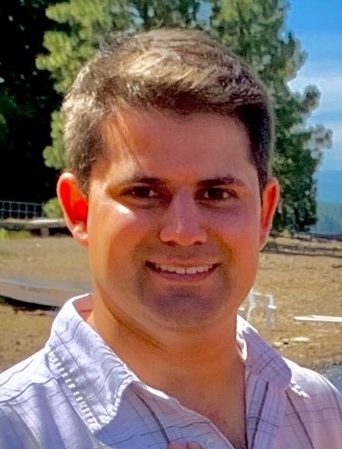
Billy Mortola, MS
Billy Mortola completed his Master of Science in biology at the University of the Pacific. He graduated from the University of California, Davis with a Bachelor of Science in fish, wildlife and conservation biology. Mortola's research interests are rather broad as he finds anything related to animals, diseases, and toxicology to be fascinating.
“This was a wonderful opportunity that allowed me to be apart of research in a growing and important field of study as well as help me to further my education.”

Sevi Djalilova, BS
Sevi Djalilova is a Doctor of Dental Medicine candidate at California Northstate University. She completed her Bachelor of Science in biology and minor in business management at the University of the Pacific.

Tara Thiemann, PhD, MS
Associate Professor, University of the Pacific
Dr. Tara Thiemann is an associate professor in the Biological Sciences Center at the University of the Pacific. The Thiemann Lab focuses on the biology of arthropod vectors that transmit pathogens to humans and other animals. Current projects include characterizing the mechanisms for insecticide resistance in Culex tarsalis, an important vector of West Nile virus. Additional projects are focused on determining which species of mosquito are important in the transmission of dog heartworm in Northern California and on evaluating the blood feeding patterns of various vector species throughout the state.
"Strengthening vector management in the US Affiliated Pacific Islands"
US-affiliated Pacific Islands' Vector Management Supervisors
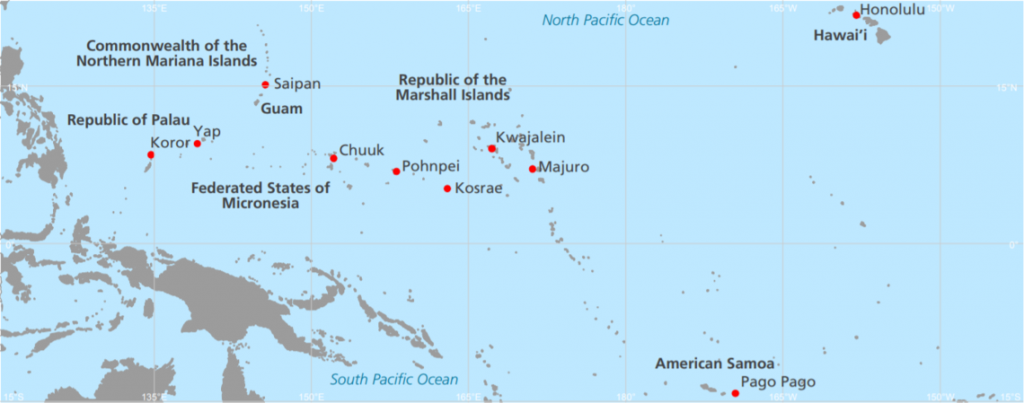

Limb Hapairai, PhD, MS
Regional Medical Entomologist, Pacific Island Health Officers Association
Dr. Limb Hapairai is a regional medical entomologist at the Pacific Island Health Officers Association (PIHOA) with a particular interest in field application of vector surveillance and control in island settings. Dr. Hapairai is working with the USAPI vector management supervisors to strengthen vector management in the USAPIs.
"Tortoises, ticks, and tick-borne pathogens of the Mojave Desert"

Molly Bechtel, PhD, MSc
Dr. Molly Bechtel is a postdoctoral researcher in the School of Informatics, Computing, and Cyber Systems at Northern Arizona University. She worked as a desert tortoise biologist at the United States Geological Survey. Dr. Bechtel graduated from the University of Nevada, Reno with a Bachelor of Science and Master of Science in animal science. Her research focuses on ticks and tick-borne pathogens of the Mojave Desert burrowing ecosystems. She is the president and co-founder of the Northern Arizona Association for Women in STEM, which advocates for equal representation of women in the sciences.
- Borreliosis transmission from ticks associated with desert tortoise burrows: Examples of tick-borne relapsing fever in the Mojave Desert. Bechtel MJ, Drake KK, Esque TC, Nieto NC, Foster JT, Teglas MB. Vector Borne Zoonotic Dis. 2021. https://doi.org/10.1089/vbz.2021.0005
“The funds from this grant allowed me to complete my PhD, purchase lab and field supplies, and also allowed me to collaborate with other universities and departments, like the California Department of Public Health.”
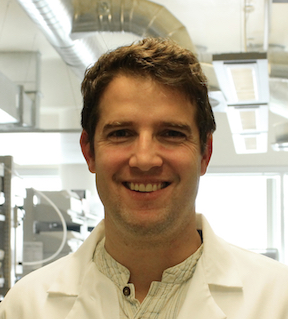
Jeffrey Foster, PhD
Professor, Northern Arizona University
The Foster Lab works primarily on wildlife (e.g. birds and bats) and livestock diseases, such as white-nose syndrome, brucellosis, and avian malaria. Researchers in the lab quantify the distribution and abundance of pathogens to understand disease ecology and use genomic approaches to assess the transmission and evolutionary history of various pathogens.
"Molecular and serological investigations of the potential vertebrate reservoir host of the emerging tick-borne pathogen, Rickettsia philipii (364D)"
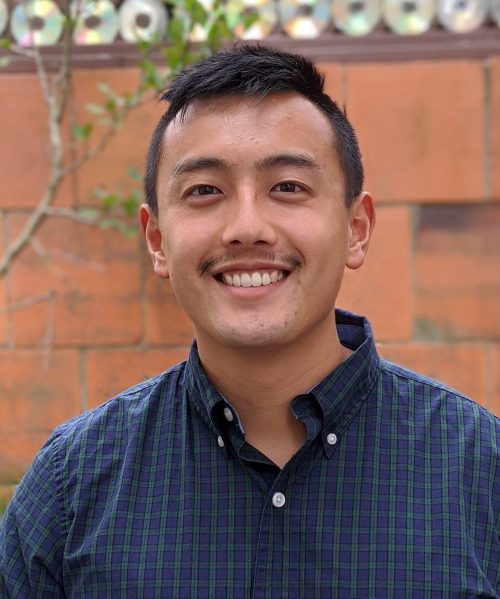
Vincent Mai, MS
Vincent Mai is a reagent manufacturing scientist at Myriad Genetics. He completed his Master of Science in integrative biology at San Francisco State University. Vincent obtained his Bachelor of Science in environmental sciences at Seattle University.
- Ixodes pacificus densities increase with habitat patch area in a fragmented landscape. Shaw G, Lilly M, Mai V, Clark J, Summers S, Swei A. Proceedings and Papers of the Mosquito and Vector Control Association 90: 90. https://www.mvcac.org/amg/wp-content/uploads/PPMV_90_1_FullIssueFINAL-2022.pdf
- Identifying potential mammalian reservoir hosts for Rickettsia 364D, an emerging tick-borne pathogen in California. Mai V, Padgett K, Paddock C, Lane RS, Saunders M, Billeter S, Swei A. Proceedings and Papers of the Mosquito and Vector Control Association 89: 13-15. https://www.mvcac.org/amg/wp-content/uploads/MVCAC-Proceedings-2021-FINAL.pdf
“Receiving the training grant from PacVec gave me the tools and guidance to conduct research in emerging infectious diseases. In addition to funding my education and research, the training grant taught me lessons in public speaking, networking, and collaboration.”
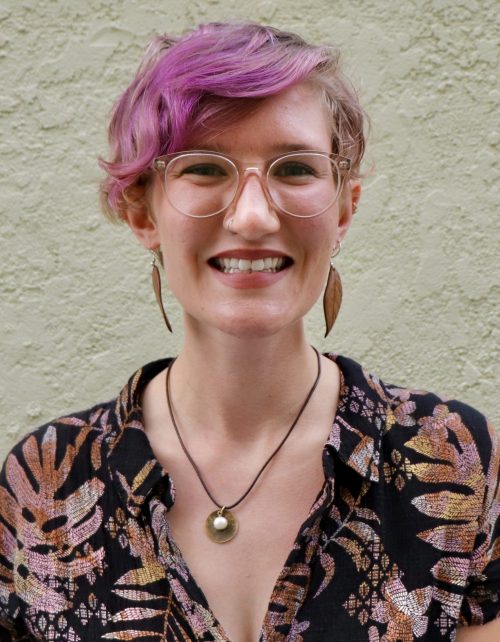
Marie Lilly, MS
Marie Lilly is a PhD candidate at Columbia University. She completed her Master of Science in ecology and evolutionary biology at the San Francisco State University in 2021 and obtained her Bachelor of Arts in biology from Oberlin college, where she developed a passion for disease ecology and taking a multilateral approach to problem solving.
- Ixodes pacificus densities increase with habitat patch area in a fragmented landscape. Shaw G, Lilly M, Mai V, Clark J, Summers S, Swei A. Proceedings and Papers of the Mosquito and Vector Control Association 90: 90. https://www.mvcac.org/amg/wp-content/uploads/PPMV_90_1_FullIssueFINAL-2022.pdf

Andrea Swei, PhD
Associate Professor, San Francisco State University
Dr. Andrea Swei is an associate professor in the Department of Biology at the San Francisco State University. Research in the Swei Lab employs interdisciplinary approaches to understand the factors that determine the distribution and prevalence of Lyme disease and other tick-borne diseases. Dr. Swei’s research focuses on several different tick-borne disease systems such as Lyme disease, babesiosis, and Borrelia miyamotoi and employs ecological theory to examine the role of disturbance, habitat fragmentation, and biodiversity on tick-borne disease ecology and public health risk.
"Identifying biomarkers of pyrethroid resistance in wild Aedes aegypti from California"

Erin "Taylor" Kelly, BS
Erin “Taylor” Kelly is a PhD candidate in vector biology, interested in vector metabolism, reproduction, and mechanisms of insecticide resistance. She completed her Bachelor of Science in biology and minor in chemistry at Santa Clara University. Taylor's long-term goal is to either pursue work as a professor with an appointment that combines teaching and research, or work as a vector control biologist at the state or county level.
- Evidence of local extinction and reintroduction of Aedes aegypti in Exeter California. Kelly ET, Brisco KK, Cornel AJ, Lanzaro GC, Attardo GM, Lee Y et al. Front Trop Dis. 2021. https://doi.org/10.3389/fitd.2021.703873
- Frequency of sodium channel genotypes and association with pyrethrum knockdown time in populations of Californian Aedes aegypti. Mack LK, Kelly ET, Lee Y, Brisco KK, Cornel AJ, Attardo GM et al. Parasites & Vectors. 2021. https://doi.org/10.1186/s13071-021-04627-3
- Corrigendum: Zika virus infection results in biochemical changes associated with RNA editing, inflammatory and antiviral responses in Aedes albopictus. Onyango MG, Attardo GM, Kelly ET, Bialosuknia SM, Stout J, Banker E et al. Front Microbiol. 2021. https://doi.org/10.3389/fmicb.2020.642886
“The PacVec training grant has been an excellent opportunity. The grant provided support for me to apply emerging techniques to questions of vector biology, and has allowed me to learn from and collaborate with vector control groups in California. I’ve really appreciated the opportunity to be a part of this community and to learn about the work and perspectives of other stakeholders.”

Geoffrey Attardo, PhD
Associate Professor, University of California, Davis
Dr. Geoffrey Attardo is an associate professor in the Department of Entomology and Nematology at the University of California, Davis. He specializes in medical entomology, reproductive physiology, molecular biology and genetics. His work centers on understanding the reproductive biology of insect vectors of human disease. The goal of this work is to develop a detailed understanding of the molecular biology and physiology of these insects and to exploit this information to control these insects and the diseases they transmit. The primary subjects of his work are mosquitoes and tsetse flies. He has studied how female mosquitoes regulate their reproductive cycle and gene expression in response to blood feeding and demonstrated that mosquitoes require nutritional cues to begin developing eggs.
"Flea-borne typhus in California, a multi-year review: 2011 – 2019"
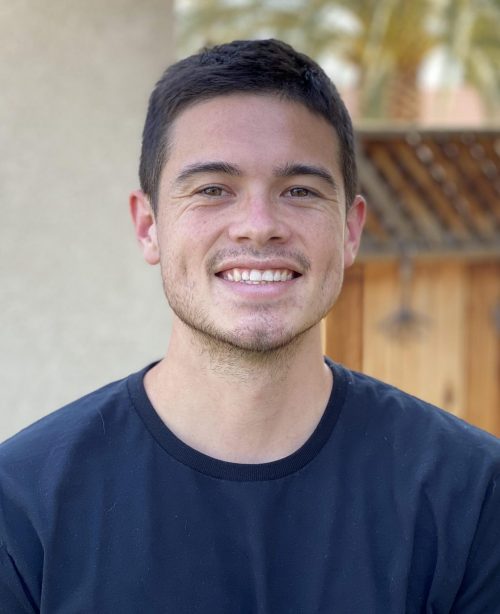
Kyle Yomogida, BS
Kyle Yomogida is a PhD candidate in the Graduate Group of Epidemiology at the University of California, Davis. He graduated from California State University, Long Beach in 2017 with a degree in health science - community health education. His experiences in public health include health behavior research projects regarding prescription stimulant misuse and two years of work for Long Beach Communicable Disease Control Program in southern California. His interests include infectious and zoonotic diseases with his PhD work, specifically focused on socioeconomic and environmental factors related to human flea-borne typhus incidences in southern California.
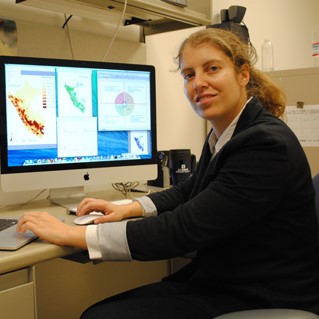
Beatriz Martinez-Lopez, PhD, MPVM, DVM
Professor and Agronomist, University of California, Davis
Dr. Beatriz Martinez-Lopez is a professor of infectious disease epidemiology at the Department of Medicine & Epidemiology, Veterinary School, University of California, Davis and director of the Center for Animal Disease Modeling and Surveillance. Her research focuses on the development and implementation of quantitative methods such as epidemiological modeling, risk assessment, geostatistical methods or network analysis to unravel complex epidemiological problems at the wild-domestic-human interface. Current research includes epidemiology and transmission dynamics of diseases such as African swine fever, foot-and-mouth disease, classical swine fever, Aujeszky´s disease, African horse sickness, bluetongue, avian influenza, West Nile, Rift Valley Fever, bovine tuberculosis or porcine reproductive and respiratory syndrome.
"Comparative genomics of Aedes albopictus in Kwajalein Atoll for developing arbovirus vector dispersal models"
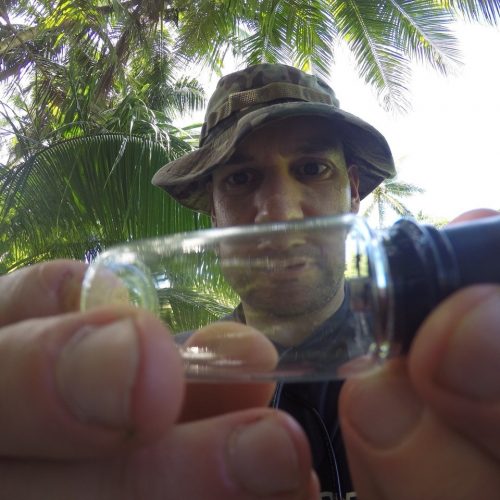
Adam Vorsino, PhD
Dr. Adam Vorsino is an ecologist for the U.S. Fish and Wildlife Service (USFWS) in Honolulu, Hawaii. Dr. Vorsino is dually charged with both developing tools and informing conservation managers of the most appropriate methodological and scientifically valid path forward. He is currently assisting with the development and advancement of the next generation of conservation tools to manage and solve some of the region’s most intractable conservation issues.
- A magnetic-bead-based mosquito DNA extraction protocol for next-generation sequencing. Chen TY, Vorsino AE, Kosinski KJ, Romero-Weaver A, Chiu JC, Lee Y et al. JoVE. 2021. https://doi.org/10.3791/62354
“The training grant was pivotal in familiarizing me with the foundational elements of whole genome sequencing and bioinformatics. It has advanced my abilities significantly.”

Joanna Chiu, PhD
Professor and Chair, University of California, Davis
Dr. Joanna Chiu is a professor in the Department of Entomology and Nematology at the University of California, Davis. The Clock Lab leverages genomics and molecular genetics approaches to understand the molecular and neuronal mechanisms underlying animal physiology and behavior. The Clock Lab also works with relevant stakeholders to develop new strategies for managing insect pests and contribute to long-term global food security and public health.
"Understanding the role of veterinary personnel and pet travel in regards to ticks and tick-borne disease in Alaska"
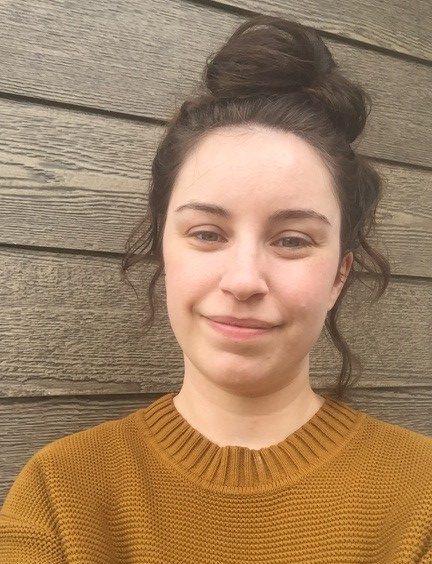
Gale Disler, MPH
Gale Disler completed her Master of Public Health at the University of Alaska, Anchorage. Her research interests include circumpolar health, One Health, and infectious disease. Gale hopes to be involved in research that examines the social and environmental factors that contribute to disease exposure.
- Ticks and tick-borne microbes identified through passive and active surveillance in Alaska. Hahn MB, Hojgaard A, Disler G, George W, Droghini A, Schlaht R, Durden LA et al. Journal of medical entomology. 2023. https://doi.org/10.1093/jme/tjad078
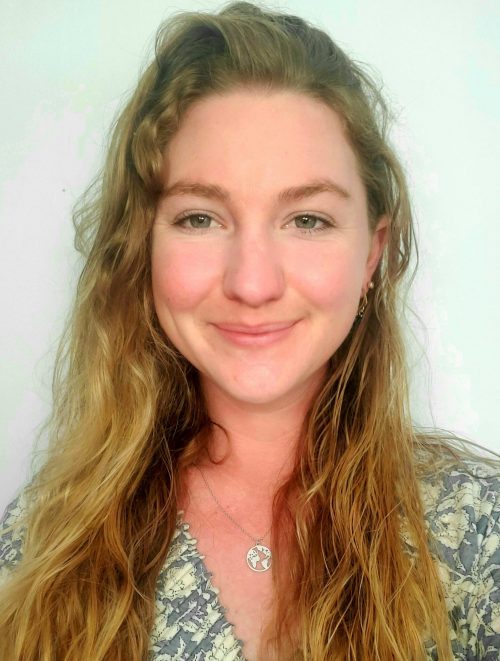
Renate Schlaht, DVM
Dr. Renate Schlaht obtained her Doctor of Veterinary Medicine from Colorado State University. She completed a Bachelor of Science in biology and environmental science with a minor in peace and justice studies at Regis University, Denver. Dr. Schlaht hopes to integrate her medical career with public health and social justice work and wants to work in the public health sector.
- Ticks and tick-borne microbes identified through passive and active surveillance in Alaska. Hahn MB, Hojgaard A, Disler G, George W, Droghini A, Schlaht R, Durden LA et al. Journal of medical entomology. 2023. https://doi.org/10.1093/jme/tjad078
“This training grant provided funded research experience for a project more extensive than any I would have been able to complete with the normal funding available for DVM students.”
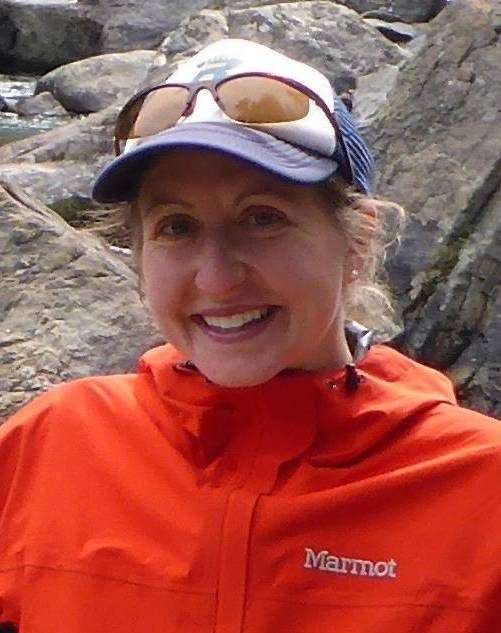
Micah Hahn, PhD, MPH
Associate Professor, University of Alaska-Anchorage
Dr. Micah Hahn is an associate professor of Environmental Health in the Institute for Circumpolar Health Studies at UAA. Her research focuses on the health impacts of climate change and climate adaptation and resilience planning in Alaska. She is working with the Office of the State Veterinarian and the Alaska Department of Fish and Game to investigate the changing risk of ticks and tick-borne pathogens in Alaska and building capacity for surveillance and testing in the state.
"Developing high-resolution risk map of West Nile virus in Coachella Valley using ECOSTRESS data"

Matthew J. Ward, PhD, MSPH
Dr. Matthew Ward is a postdoctoral research fellow at the Icahn School of Medicine at Mount Sinai. He completed his Master of Public Health and Doctor of Philosophy at Tulane University School of Public Health and Tropical Medicine.
- A proposed framework for the development and qualitative evaluation of West Nile virus models and their application to local public health decision-making. Keyel AC, Kilpatrick AM, Holcomb KM, Ward MJ, Barker CM, Smith RL et al. PLoS Negl Trop Dis. 2021. https://doi.org/10.1371/journal.pntd.0009653
- The development of a spatially resolved ensemble forecast model of West Nile virus transmission in the Coachella Valley, CA. Ward MJ, Sorek-Hamer M, Henke J, Vemuri K, DeFelice N. Proceedings and Papers of the Mosquito and Vector Control Association 89: 76-79. https://www.mvcac.org/amg/wp-content/uploads/MVCAC-Proceedings-2021-FINAL.pdf

Meytar Sorek-Hamer, PhD
Manager and Research Scientist, Universities Space Research Association (USRA) at NASA Ames Research Center
Research in USRA Environmental Analytics group at NASA Ames Research Center, led by Dr. Meytar Sorek-Hamer, employs interdisciplinary research using different satellite-borne data sources to understand Atmospheric processes, Air quality, and Environmental health phenomena on Earth and in space. Currently they are working with the high-resolution ECOSTRESS data to provide better understanding of climate-sensitive biomes appropriate for vector and viral amplification. This will allow for a more robust spatial understanding of the current risk of mosquito dynamics.
"Orientation behavior of western tree hole mosquitoes, Aedes sierrensis (Ludlow)"
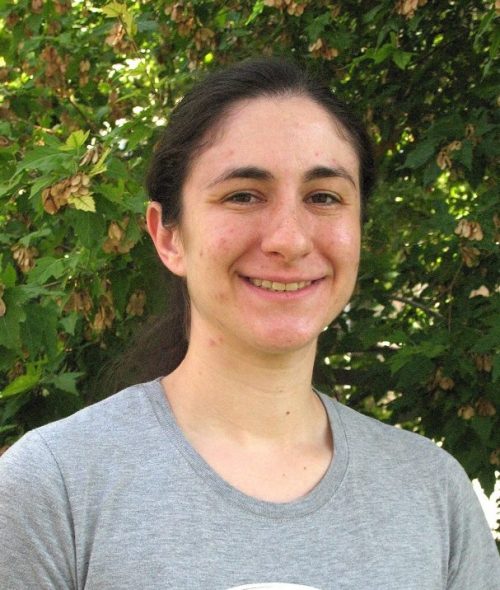
Kirsten Meredith, BS
Kirsten Meredith is a PhD candidate in the School of Biological Sciences at the University of Utah with an interest in host discrimination and other odor-mediated behaviors of mosquitoes as well as their flight dynamics. Kirsten completed a Bachelor of Science in biology at the University of Utah. Since insect vector biology intersects with many aspects of society, Kirsten’s main goal is to take what she learns from her PhD and apply it to the interface between science and politics, education, business as well as outreach to the general public.
“The PacVec training grant allowed me to focus on my research within the COVID-19 pandemic, and gave me several opportunities to practice disseminating science to knowledgeable audiences within my research field.”

Neil J. Vickers, PhD
Professor, University of Utah
Co-Director, School of Biological Sciences
Dr. Neil Vickers is a professor and the co-director of the Department of Biological Sciences at the University of Utah. The Vickers Lab has a long-standing interest in odor-mediated behaviors and the neurobiology of olfaction in insects. Most of their previous work has focused on male moth behavior in response to female-produced pheromones and the neural basis of olfactory discrimination between closely-related species. Recently, they have become interested in the fascinating multi-sensory basis of adult female mosquito behavior and have been conducting field work in collaboration with the Salt Lake City Mosquito Abatement District (SLCMAD). The Vickers Lab hopes that their studies will lead not only to advances in their understanding of the basic biology of mosquitoes but will also facilitate improvements in their control.
"Population genetic structure of the western black-legged tick, Ixodes pacificus"

Jeremiah Reyes, BS
Jeremiah Reyes is a PhD candidate in biochemistry at the University of Nevada, Reno. Jeremiah completed his Bachelor of Science in chemical engineering with a biomedical emphasis and mathematics minor at the University of Nevada, Reno. His primary research interests are identifying anti-tick vaccine targets using multi-omics tools. Jeremiah’s long-term goal is to pursue work as a military medical entomologist or work in the public health sector as a vector biologist.
- Ecology of Ixodes pacificus ticks and associated pathogens in the Western United States. McVicar M, Rivera I, Reyes JB, Gulia-Nuss M. Pathogens. 2022. https://doi.org/10.3390/pathogens11010089

Fiza Arshad, MS
Fiza Arshad is a PhD candidate in biochemistry and a graduate research associate at the University of Nevada, Reno. She is interested in genomics, vector metabolism, and vector-pathogen interactions. Fiza completed her Master of Science in biotechnology at the University of Nevada, Reno. Her long-term goal is to lead a research team as a faculty member or work as a vector biologist at the state level.
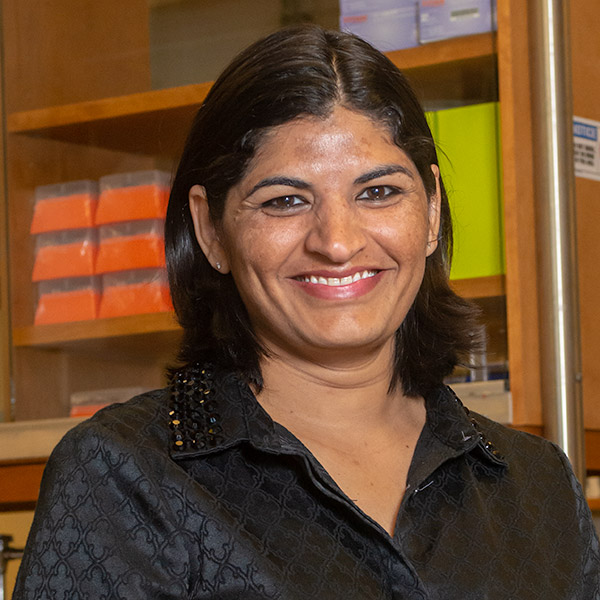
Monika Gulia-Nuss, PhD, MS
Associate Professor and Graduate Program Director, University of Nevada, Reno
Dr. Monika Gulia-Nuss is an associate professor and graduate program director at the University of Nevada, Reno. The Gulia-Nuss Lab employs biochemistry, molecular biology, genomics, and bioinformatics approaches to understand the physiology of arthropod vectors of human disease. Most of the work has been focused on mosquitoes, Aedes aegypti, and ticks, Ixodes spp. One of the major areas of research is elucidating the functions of insulin-like peptides in arthropod physiology including nutrition, reproduction, and pathogen development. The Gulia-Nuss Lab is at the forefront of genetics and functional genomics techniques development for studying tick vectors on a molecular level.
TRAINING GRANT PROGRAM
PacVec’s training grant program intends to provide career development opportunities for individuals interested in public-health-relevant research on vector-borne diseases and to enable additional research and training opportunities that will contribute to the development of the public health workforce.
The Pacific Southwest Regional Center of Excellence in Vector-Borne Diseases is supported through Cooperative Agreement Number 1U01CK000649 between the Centers for Disease Control and Prevention (CDC) and the University of California, Davis.
© 2025 – All rights reserved